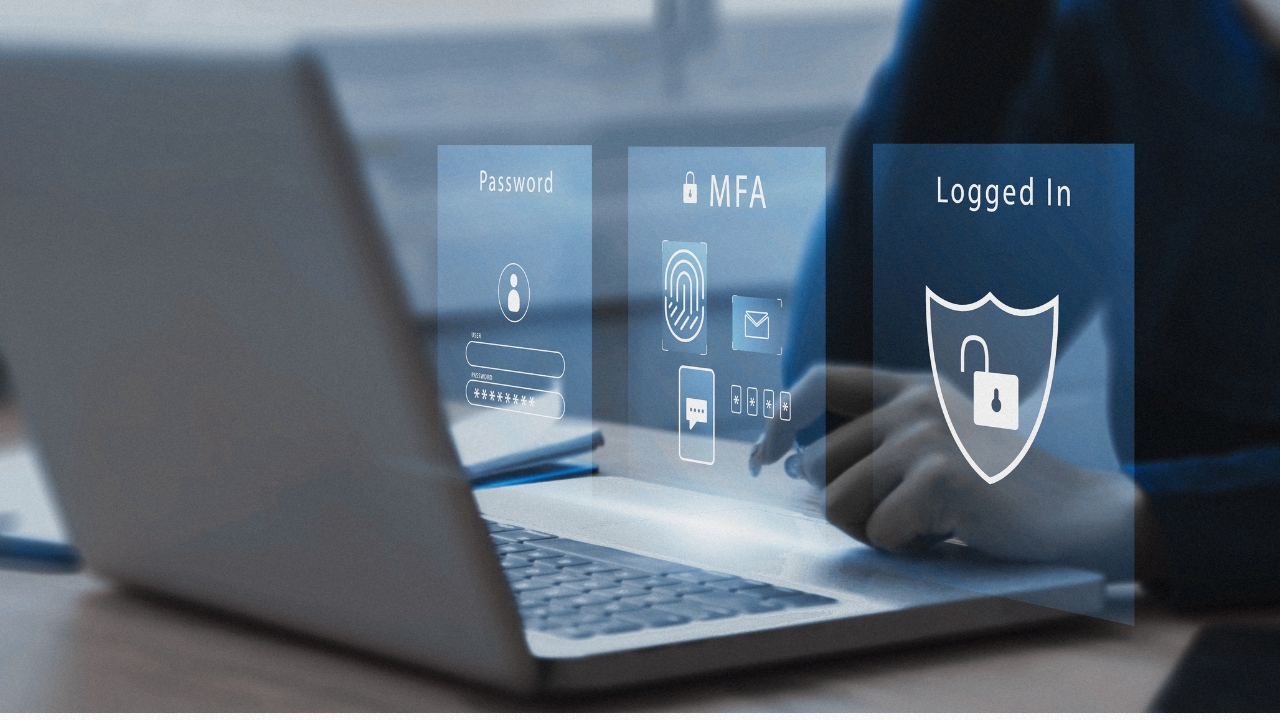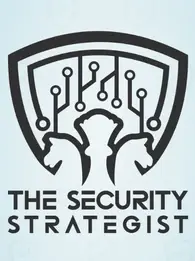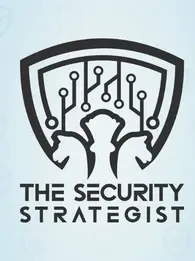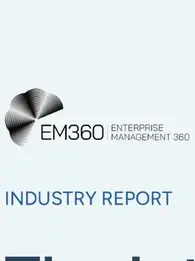
Security is a critical concern for any business. Not only do today’s companies need to keep their data safe, but they need to prove to their customers that they can protect them too.
With cyber attacks more common and more sophisticated than ever before, this is becoming increasingly challenging. There have been a whopping 35,900,145,035 records stolen in almost 10,000 security incidents or breaches since January 2024 alone, and over half of organisations report having experienced some sort of security incident or breach since 2023.
With the risk higher than ever before, organizations big and small and from all sectors are implementing Multi-Factor Authentification (MFA) software tools to keep their organisational and customer data safe.
What is Multi-Factor Authentification (MFA)?
Multi-factor authentication (MFA), is a security measure that adds an extra layer of protection to online accounts to make it harder for hackers or scammers to gain access. It goes beyond just a username and password by requiring at least one more piece of evidence to verify your identity when you log in.
Instead of just relying on your password, MFA requires you to provide two or more pieces of evidence to verify your identity when you log in. This could include a code sent to the account owner’s phone number, a security token on an app, or even a biometric fingerprint spam.
Adding this extra layer of protection makes it much harder for hackers to access your account. Even if they manage to get your email address and password, they won't be able to log in without your phone or your fingerprint or another form of authentication.
MFA is a simple but very effective way to protect your online identity and information. Many websites and online services offer MFA as an optional security feature, and it's a good idea to enable it whenever possible if you want an extra layer of security for your account.
How does MFA work?
MFA (Multi-Factor Authentication) works by adding an extra layer of security to your login process by requiring more than just your password.
When a user tries to log in to a website or application that uses MFA, they’ll be prompted to enter their username and password as usual.
Then, they’ll be asked to provide one or more additional factors. This could be information from your phone where you receive a unique code via SMS, email, or an authentication app that generates a code on your phone itself. It could also be biometric information, such as a fingerprint, an iris scan, or even facial recognition to verify your identity.

Once you provide the second factor, like the code or biometric scan, the system verifies it. If the second factor matches what the system has on record for your account, access is granted. If not, the login attempt is denied, potentially indicating a fraudulent attempt.
Sometimes, after a successful login with MFA on a trusted device, the system might remember it and allow login with just your password in the future. This adds convenience while maintaining an extra layer of security for new devices or unrecognized login attempts.
Choosing a MFA provider
Choosing the best MFA provider solution requires balancing security with user experience and your organization's needs. Here's some factors to consider:
1. Security Strength
Not all data is created equal. Highly sensitive information like financial records or confidential projects deserves a stronger layer of security compared to a personal social media account. Even the most secure MFA system can be vulnerable if the verification methods themselves are weak. For instance, a compromised phone number used for SMS codes or a stolen hardware token can still grant access to attackers – no matter how strong the MFA solution itself may be.
If your organization deals with large amounts of sensitive data, look for one that offers various authentication factors to match the risk level of your data.
2. User Experience
A complex or frustrating MFA system can backfire. Users might skip it altogether or resort to workarounds like insecure password sharing if the login process becomes too cumbersome.
Many organizations look for frictionless MFA solutions, which provide an intuitive MFA experience for the user that fits seamlessly into the login flow. This is a win-win situation, as it strengthens security by encouraging consistent use and reduces the burden on both users and your IT team while also prioritising a user-friendly MFA experience.
3. Deployment and Cost
Deployment and cost are important factors when choosing an MFA provider because they impact both the security effectiveness and the overall usability of the solution for your organization. Cloud-based MFA solutions are generally quicker and easier to deploy compared to on-premises solutions. They don't require installing software or hardware on individual devices, minimizing IT burden and downtime, which is especially crucial for businesses with remote workforces or limited IT resources.
Cloud-based MFA typically also involves a subscription fee to eliminate the upfront costs of buying and distributing hardware tokens. This can be a major advantage for organizations with tight budgets.
4. User Base
Think about your user demographics. If your MFA solution isn't user-friendly or caters to different preferences than those of your users, there's a higher chance of users resisting its implementation. Not everyone has smartphones or may be comfortable with biometrics, so it’s important to choose a solution with options that cater to different user preferences and abilities.
5. Compliance Needs
Compliance needs are important when choosing an MFA provider because some industries are subject to regulations that mandate specific security measures There are specific compliance requirements in place for specific industries e to safeguard sensitive data, like financial information or personal health records. By choosing an MFA provider that meets your specific compliance requirements, you ensure your organization is using an appropriate level of security to protect this data.
Best Multi-factor Authentification (MFA) Providers and Solutions
There are a range of different MFA providers and solutions available today with varying features and functionalities.
Here's a breakdown of some of the best MFA software tools today based on their features, popularity with users, and effectiveness at keeping online accounts secure.
Auth0 by Okta
Auth0, now part of Okta, is a cloud-based customer Identity and Access Management (CIAM) solution that stands out for providing one of the most user-friendly MFA tools on the market. The software simplifies the setup and configuration of MFA for your applications, allowing teams to quickly add an extra layer of security to their website or application without extensive technical expertise. You can implement Auth0 into any application written in any language and any framework with just a few lines of code. The software also comes with 30+ software development kits and Quickstarts to implementing MFA a breeze. Once implemented, you can also manage all your MFA settings and user access from a single, unified dashboard, simplifying administration and streamlining security protocols across your organization.
Auth0 doesn’t just make setting up simple too. From improving customer experience through seamless sign-on to making MFA as easy as a click of a button, it also maintains your user experience by finding the right balance between user convenience, privacy and security in your login box. You can use social login integrations, lower user friction, incorporate rich user profiling, and facilitate more transactions all while providing a secure MFA experience for the user. For large B2B and SaaS businesses, you can also incorporate an organizational portal, access controls, and multiple extensions, allowing you to create an MFA experience that matches your clients’ security expectations while not compromising on their experience.
WatchGuard Authpoint
WatchGuard’s AuthPoint Identity Security is a powerful MFA software solution that provides all the security you need to protect identities, assets, accounts, and information across your organization. The platform uses a unique mobile device DNA to match the authorized user’s phone when granting access to systems and applications. This means that an attacker who clones a user’s device in an attempt to access a protected system would be blocked – since the device DNA would differ – allowing you to block malicious activity while not compromising on the experience of your users. The Authpooint Total Identity Security also enhances user-centric capabilities by providing extensive credentials management through a corporate password manager and dark web monitoring services. This allows you to confidently protect workforce identities and authorize verified user access to your systems and networks.
AuthPoint MFA offers easy-to-deploy security and reliable user verification methods that adapt to any workforce. Its extensive integration ecosystem and single sign-on (SSO) capabilities provide comprehensive access control, enabling organizations to manage user access privileges quickly and efficiently. This makes it ideal for organizations seeking a strong MFA solution with unique mobile DNA verification and a focus on user experience.
Yubico Yubikey
Unlike other software-based solutions on this list, Yubico Yubikey is a unique, hardware-based MFA tool in the form of a physical device that plugs into your phone or laptop Rather than sending codes received via phone or email, YubiKeys provide an extra, physical layer of security for modern, multi-factor and passwordless authentication. You simply plug it into a USB port or tap it on your phone with NFC (Near Field Communication) to generate a unique code and verify your identity, allowing users to gain access to accounts with a single tap. This process makes it more secure than many other cloud-based MFA solutions, as it eliminates common vulnerabilities associated with software or phone-based MFA solutions such as phishing or spoofing.
YubiKeys are versatile and support various authentication protocols like OTP (One-Time Password), FIDO2, and Smart Card, allowing them to work with a wide range of online services and applications. They are also small and lightweight, making them easy to carry on a keychain or keep in your wallet, and don't require batteries and work seamlessly across different devices. They’re also built to last and are water-resistant and crush-resistant ensuring they can withstand everyday wear and tear. Obviously, YubiKeys might not be suitable for all situations. But they do offer some of the most secure MFA solutions on the market security despite being less convenient compared to app-based solutions.
ManageEngine ADSSelfService Plus
ManageEngine ADSelfService Plus is a self-service password management MFA solution designed to improve IT security and the user experience simultaneously with adaptive The platform offers 20 different authentication factors for identity verification, including FIDO passkeys, biometrics, and even Yubikey authenticator. It also enables passwordless login for cloud and on-premises applications through SSO, and you can also fine-tune the access rules for IT resources such as applications and endpoints based on a user's location, IP address, time of access, and device used, giving you the flexivilituy to secure user accounts in a way that suits your business. You can also configure MFA for VPN, OWA, and machine logins in just a few clicks from the platform’s user-friendly console, making it easy to set up different MFA flows for different groups or departments in your organization.
ADSelfService Plus focuses on securing access to Active Directory environments, a common directory service used in many organizations. Users can reset forgotten passwords, unlock accounts, and update password policies independently, reducing IT help desk burden. ManageEngine also offers a tiered pricing structure, making it a cost-effective solution for organizations, especially those already invested in the ManageEngine ecosystem. This makes it a strong choice It's a strong choice for organizations invested in Active Directory and seeking a platform that goes beyond just basic MFA.
Silverfort Unified Identity Protection Platform
Silverfort’s Unified Identity Protection Platform is an agentless MFA solution that focuses on securing user access across your entire IT infrastructure including on-prem and cloud environments. Unlike some MFA solutions that require software installation on every device, the platform integrates with your existing identity and access management (IAM) systems to simplify deployment and reduce maintenance overhead. This provides end-to-end MFA coverage without modifying servers and applications, deploying proxies in your network, or installing agents on your machines.
Silverfort’s unified identity protection platform can completely replace any MFA solution, delivering broader protection, simpler maintenance and significant savings while addressing MFA, PAM and UEBA. The platform extends MFA protection to cover resources and use cases that other MFA solutions don’t support, You can apply MFA protection to legacy applications, command line access on servers and workstations, file shares, networking and IT infrastructure, external and internal admin access, and other resources that couldn’t be protected before. You can also integrate Silverfort with other MFA providers, including Microsoft, Okta, Ping, Yubico, Duo, RSA, and HYPR, allowing you to apply MFA across your organization, allowing you to consolidate your MFA solutions into one to lower costs and provide a more consistent user experience.
CrowdStrike Complete Identity Threat Protection
Falcon Complete ITP is the first and only fully managed identity protection solution, delivering frictionless, real-time identity threat prevention and MFA policy enforcement, with expert management, monitoring and remediation. The software goes beyond traditional MFA by comparing live traffic against behaviour baselines and policies to detect attacks and lateral movement in real time. It does this using behaviour analysis and threat intelligence, which identify suspicious activity and potential compromise attempts as well as a single sensor that can be deployed anywhere in the customer environment. The platform can also adapt authentication requirements based on user context and potential risks, further securing your account from malicious actors.
Crowdstrike already has an extensive global threat intelligence network for real-time detection and proactive defence, and Falcon Identity Integrates seamlessly with other Falcon products for a unified security ecosystem. And with hyper-accurate detection of identity-based threats, the platform can stop modern attacks like ransomware in real-time by leveraging the industry’s leading threat intelligence and enriched telemetry.
LastPass
LastPass is a powerful MFA solution that makes it easy for users to securely access and share apps not protected by SSO and sensitive info. The software integrates with your browser and fills in login details automatically, providing an extra layer of security on top of your master password for LastPass itself, and optionally for other supported applications. It can analyze also login attempts and require additional verification based on factors like location or device used, adding yet another layer of protection against phishing attempts.
LastPass Eliminate the need for your master password altogether by using only your fingerprint or a security key. The solution provides biometric and contextual multifactor authentication factors to add extra security while making it easy for employees to access work. It secures every access point – from legacy to cloud apps, VPN and workstations, and connects users seamlessly across all their devices, for flexibility in how your organisation manages authentication. This means your IT team will be able to manage access control without hindering employee productivity.
Salesforce Multi-factor Authentication
Salesforce Multi-Factor Authentication is a security solution designed to protect enterprise access to Salesforce products by adding an extra layer of verification on top of a username and password login. The solution offers simple, innovative MFA features that provide a balance between strong security and user convenience, supporting several types of strong verification methods to satisfy your business and user requirements. The Salesforce Authenticator Mobile App, for instance, offers a fast, frictionless solution that makes MFA verification easy via simple push notifications that integrate into your Salesforce log in process.
When multi-factor authentication (MFA) is enabled for your Salesforce products, the login process requires users to provide a verification method in addition to their username and password. This allows the use of strong verification methods only – that is, methods that provide high assurance that the user is who they say they are. Salesforce products support several types of strong verification methods, including the Salesforce Authenticator mobile app and third-party authenticator apps. Some products also support the use of physical security keys and built-in authenticators. For your MFA implementation, choose the option or options that work best for your business and user needs.
Microsoft Entra ID
Microsoft Entra ID, formerly known as Azure Active Directory (Azure AD), is a cloud-based identity and MFA solution that goes beyond just managing user accounts and offers robust features for keeping accounts secure. The software supports various MFA methods like phone calls, SMS verification, authenticator apps (like Microsoft Authenticator), and security keys, providing multi-layered security with industry-leading identity management and authentication features for secure adaptive access. IT admins can define rules for when MFA is required, enforce security policies, and track user activity across the Microsoft ecosystem from a central location. This makes it easy to manage all your identities and access to all your applications in a central location, whether they’re in the cloud or on-premises, to improve visibility and control.
Entra ID integrates smoothly with Microsoft 365, Azure AD, and thousands of SaaS applications. Users can enjoy single sign-on (SSO) across these platforms, reducing login fatigue while maintaining strong security The solution also provides a fast, easy sign-in experience across your multi-cloud environment to keep your users productive, reduce time managing passwords, and increase productivity. Entra ID's comprehensive feature set, tight integration with Microsoft products, and the power of the Microsoft brand make it one of the best MFA solutions for enterprises seeking a secure and user-friendly multi-factor authentication system.
Cisco Secure Access by Duo
Cisco Secure Access by Duo, often simply referred to as Cisco Duo, is a cloud-based MFA solution that is largely considered to be one of the best and most trusted identity security tools on the market. The software offers a range of powerful authentication methods to choose from and combine, such as biometrics, tokens, passcodes, the Duo Push mobile app, and more. Implementing MFA is also quick and easy for users with Duo's MFA mobile app, with users only having to verify once in a timeframe set by administrators, making it simpler than ever to log on securely. Duo's adaptive authentication also lets you create custom access policies based on contextual factors like role, application, geographic location, network, and device health, giving you full control over how you secure your user accounts.
Because Duo functions like a gateway for your existing and future IT infrastructure, it’s the perfect solution for growing businesses of any size. You can set up new users and support new devices at any time, and protect new applications almost instantly — without impacting legacy technology. It’s also highly scalable and can be easily integrated with most major apps and custom applications, enabling a secure access solution that can be implemented with minimal IT involvement. Duo natively integrates to secure any application or platform, so whether you're adding two-factor authentication (2FA) to meet compliance goals or building a full zero-trust framework, Duo is the perfect addition to your security portfolio.












